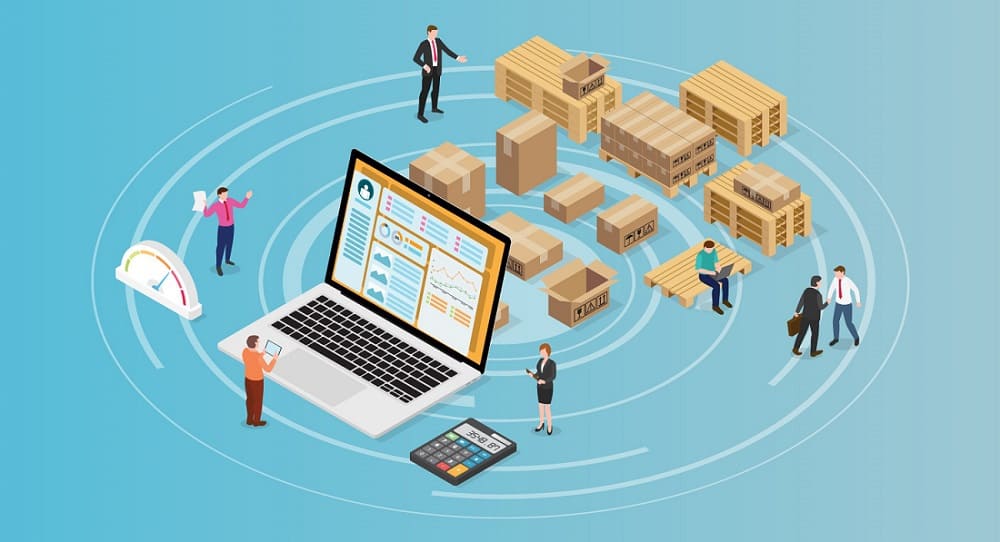
The supply chain, which includes product development, sourcing, production, and sending of goods and services, requires logistics management. The flow and storage of products, services, and related information must be well-coordinated throughout the management process. Managing the logistics chain efficiently requires a conscious effort to build and run the supply chain from the point of origin to customer consumption.
Proper planning, sourcing, manufacturing, delivering, returning, and enabling processes are essential to increase supply chain effectiveness. The whole supply chain benefits from the increased leverage of operational fluency provided by logistics management software. Timely and reliable logistics data aids the organization in reducing costs and improving customer service.
Logistics management software has a wide range of applications. Because the logistics market is expanding rapidly, it is expected to increase at a CAGR of 3.48 percent from 2016 to 2022, reaching a global market size of $12,256 billion by 2022. The supply chain system can be aligned and automated by incorporating logistics management software into the business process. From inventory management to warehouse operations and shipping, this will help you streamline your logistics demands and requirements. The use of the appropriate software will ensure that the supply chain runs smoothly. The top ten benefits of adopting Logistics Management Software are listed in this article.
1. Cost-cutting
One of the most significant advantages of employing Logistics Management Software is the cost savings. Effective software assists the organization in determining the most appropriate shipping services. The organization can choose the most cost-effective and efficient mode of transportation by analyzing and comparing services.
The organization can create a cost-effective technique with appropriate shipment planning. Customers can expect prompt delivery of their services or products at a low cost.
2. Management of Orders
The logistics software’s order management component simplifies and automates the fulfillment process. It takes more than just receiving and managing orders to run a business. Administrators can use this platform to arrange inventory databases, gather data, process orders, enable fulfillment systems, and simplify returns to this fulfillment system. A good order management system shortens the order-to-cash cycle and increases order processing efficiency for suppliers.
3. Inventory Control
Effective inventory management is essential to track the availability of items and enhance efficiency. Logistics management software and an inventory management platform are all made easier to control and supervise purchases, maintain goods, and regulate sales and order fulfillment. The software’s inventory solution simplifies the monitoring and management procedure. It brings all the information in one place for easy data processing and retrieval.
4. Management of the warehouse
The logistics software’s warehouse management solution aids in administering warehouses and distribution centers. It also makes appropriate planning, organizing, staffing, directing, and managing the industry’s utilization easier. An efficient warehouse management system allows products to be moved or stored inside and outside the warehouse. Both companies and customers profit financially from efficient warehousing techniques.
5. Management of transportation
Logistics software is a framework for managing the transit of commodities between distribution and consumption places. It aids firms in the planning, execution, and optimization of physical products movement. It also guarantees that the shipment is compliant and that the necessary documentation is accessible.
6. Logistics analytics
The logistics software’s logistics analytics component aids in accurately assessing logistics operational efficiency. This is accomplished through comprehending functional metrics, such as delivery history. Businesses can plan resources for optimal growth with the optimization, simulation, and analytics software package.
7. Risk management
The logistics business relies heavily on risk management. The risk management platform in the logistics software assists the organization in setting strategic goals that enable the safe movement and management of products and services. It also handles insurance claims, freight accidents, and any other issues that arise.
8. Scalability
In the long run, logistics software that you can scale up to match the industry’s rising expectations can be beneficial. If the industry grows in size or number, the software should handle the additional strain.
9. Customer service
Customer support service tools should be included in any good logistics software. This will assist you in centralizing all of your customer service requirements. Automation, chatbots, and virtual assistants may improve customer service speed, time, and quality.
10. Access to real-time freight data and analysis
Thanks to logistics software, data management, and freight accounting, information will be at your fingertips. The analytical technique is made easier by having easy access to data.
Conclusion
Logistics management software consolidates and automates inventory, order, and shipping administration for numerous warehouses and clients on a single platform. This aids in efficient fieldwork management, increased sales, improved customer service, and financial administration services.



